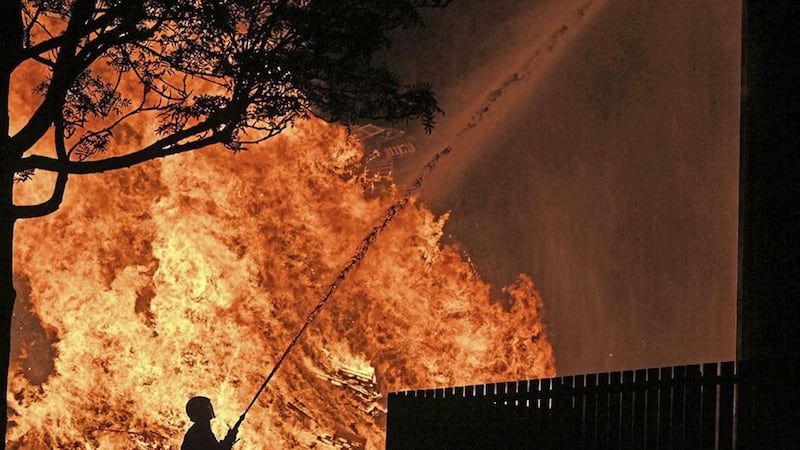Anyone who has spent any period of time living in the United States will know the place of college sports in American culture.
It truly is something to behold and without parallel in our society, with intra-state sporting rivalries often reaching levels of intensity that would seem strange in a land like ours where varsity level sport is not something which attracts any significant level of spectator interest.
The state of Texas annually hosts a special rivalry game in college American football between the University of Texas and Texas A & M, a name derived from its original status as the Agricultural and Mechanical College of Texas. These are games which consistently pack stadia with capacity crowds north of 80,000, reflecting the keen local and national interest.
Sporting teams from the latter college are better known by their nickname of ‘the Aggies’, and a special annual tradition held for more than 90 years in preparation of the big rivalry game was the construction by students of the Aggie Bonfire, the lighting of which apparently reflected the students’ collective burning desire to beat their great rivals.
That tradition ended tragically in 1999 when the bonfire collapsed during construction, killing eleven of the students. Since then, the university has disowned the tradition, though a smaller unofficial bonfire organised by diehard fans is annually burned in an endeavour to keep the practice alive.
There is no sign as of yet in the north of Ireland that the self-evident dangers associated with the construction of towering bonfires in the middle of residential communities and at peace line interfaces every July will lead to statutory bodies and political leaders uniting to regulate the practice before a similar tragedy strikes.
Last summer, a young man suffered severe burns in a horrific incident captured on video at a bonfire in the Ballysillan area of north Belfast. At the same time, footage shared across social media platforms showed the terrifying moment a raging bonfire unexpectedly collapsed, sending scores of terrified onlookers running for their safety.
The case for regulation of bonfires hardly needs to be made at this point. Regulation with regard to contentious parades courtesy of the Parades Commission has all but resolved that matter since the turn of the century, and the enhanced risks and danger to life and property associated with bonfires mean that the case for regulation is all the more compelling.
We do not have a regulatory approach to bonfires because unionist politicians are too cowardly to provide the strong direction required in local working class communities to introduce and support the enforcement of the changes required.
The DUP have once again this summer refused to nominate a party representative for the Bonfire Working Group on Derry City and Strabane Council. Last year they did likewise claiming it was because the unionist people were “annoyed” about a range of issues including the protocol.
Abdicating responsibility and leading from the back has been a calling card for unionist politicians for a very long time. The net result of this collective dereliction of duty has been increased disillusionment and alienation within many Protestant working class communities as well as the ceding of ground to the still existent loyalist paramilitary gangs.
A recent news story highlighted how some £800,000 had been spent in the past three years cleaning up, repairing and protecting properties so that often illegal pyres can be constructed in the public space.
We are literally paying the price for permitting a culture of lawlessness to continue. Unionism’s political cowardice leaves statutory bodies fearful of fulfilling their duties, creating the absurd spectacle annually of firefighters hosing down houses already boarded up whilst a fire rages nearby.
We know what regulation would look like. A licensing element would immediately create a culture of accountability and responsibility. Bonfires would be restricted to spaces which do not threaten life nor property nor that could be deemed contentious, whilst risk assessments would ensure carefully thought out measures were planned and agreed to limit the potential for builders and spectators to be injured. Items placed on bonfires would also be subject to regulation.
That last point is notable for a number of reasons. Whilst the poisonous practice of burning effigies, posters, football tops and flags associated with Catholics, nationalists and many others is regularly raised in the public domain, what does not receive sufficient attention is the culture of menace and malice which ensures that costly wooden pallets are, ahem, 'voluntarily donated' by businesses. Various online firms will provide quotes ranging from £4 to as much as £15 for a single wooden pallet. How the thousands of pallets that pile up on the scores of bonfires that climb into the sky every mid-July are obtained is one of these inconvenient subjects best not asked for fear of an answer.
A bonfire culture can and will survive into the future, but regulation remains key to a transformation that will ultimately be of greatest benefit to the communities playing host to the annual gatherings.








